Fruits are excellently fit for intermittent fasting because it’s beneficial to live a healthy life and lose weight. How to eat fruits to benefit from intermittent fasting will be discussed in this article.
Why Fruits are Friendly to Intermittent Fasting?
Why intermittent fasting? The advantages of intermittent fasting include but not exclude the following items:
- Weight loss
- Healthy keeping
- Focusing
- Metabolism
- Disease risk reduction.
Fruits are typically rich in vitamins, minerals, phytonutrients and fiber that can help lower cholesterol levels, control blood sugar levels and maintain bowel health. Another plus: fruits are low in calories.
The government’s 2020-25 Dietary Guidelines for Americans recommend that for a 2,000-calorie-a-day diet, most people should eat about 2 cups of fruit daily.
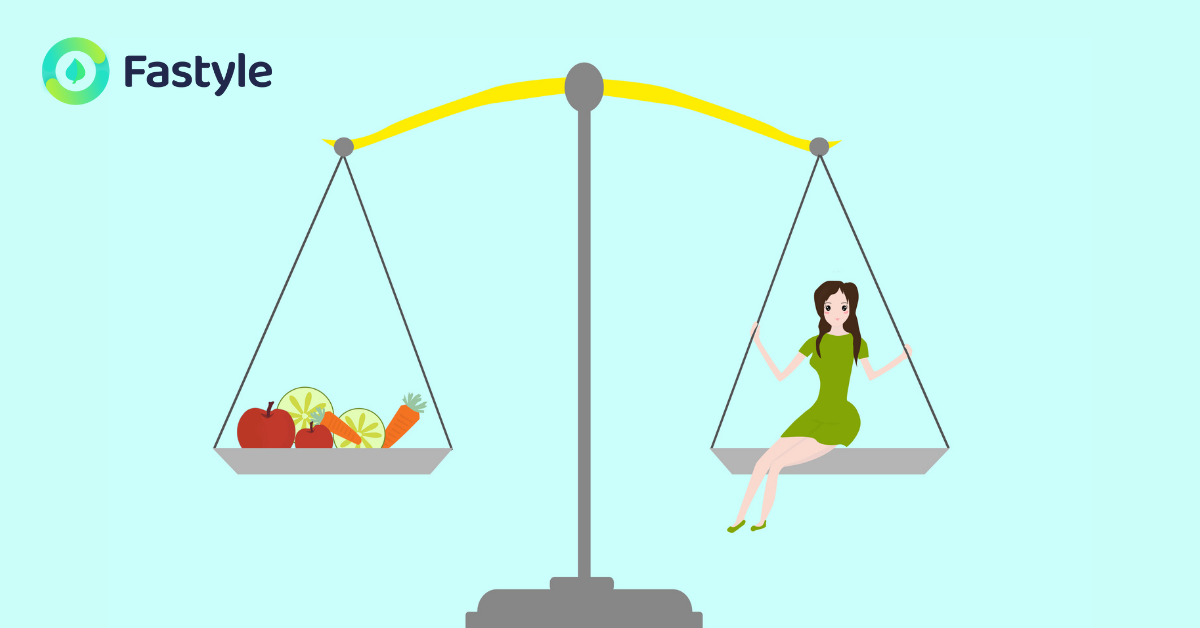
Dos and Don’ts about Fruit Intake for Intermittent Fasting
Keep in mind that all fruits are fit for intermittent fasting. Nevertheless, there are still some fruits eating habits that should be conformed to or avoided for an optimal effect on intermittent fasting.
Eat Fruit; Don’t Drink.
It’s optimal to get nutrients from fruits as you eat them instead of drinking fruit juice. As fruits are squeezed or made into juice, nothing is left in your juice but much sugar and some vitamins and minerals. Without fiber in fruits, they aren’t fit for weight loss anymore. Therefore, do eat fruits to replace fruit juice.
Eat Fresh Fruits; Don’t Eat Dried Ones.
Do you know dried fruits contain more sugar than fresh ones? It’s never too late to know that.
Take grapes for example, as high as 182 calories can be saved per ounce if fresh grapes are selected instead of dried ones.
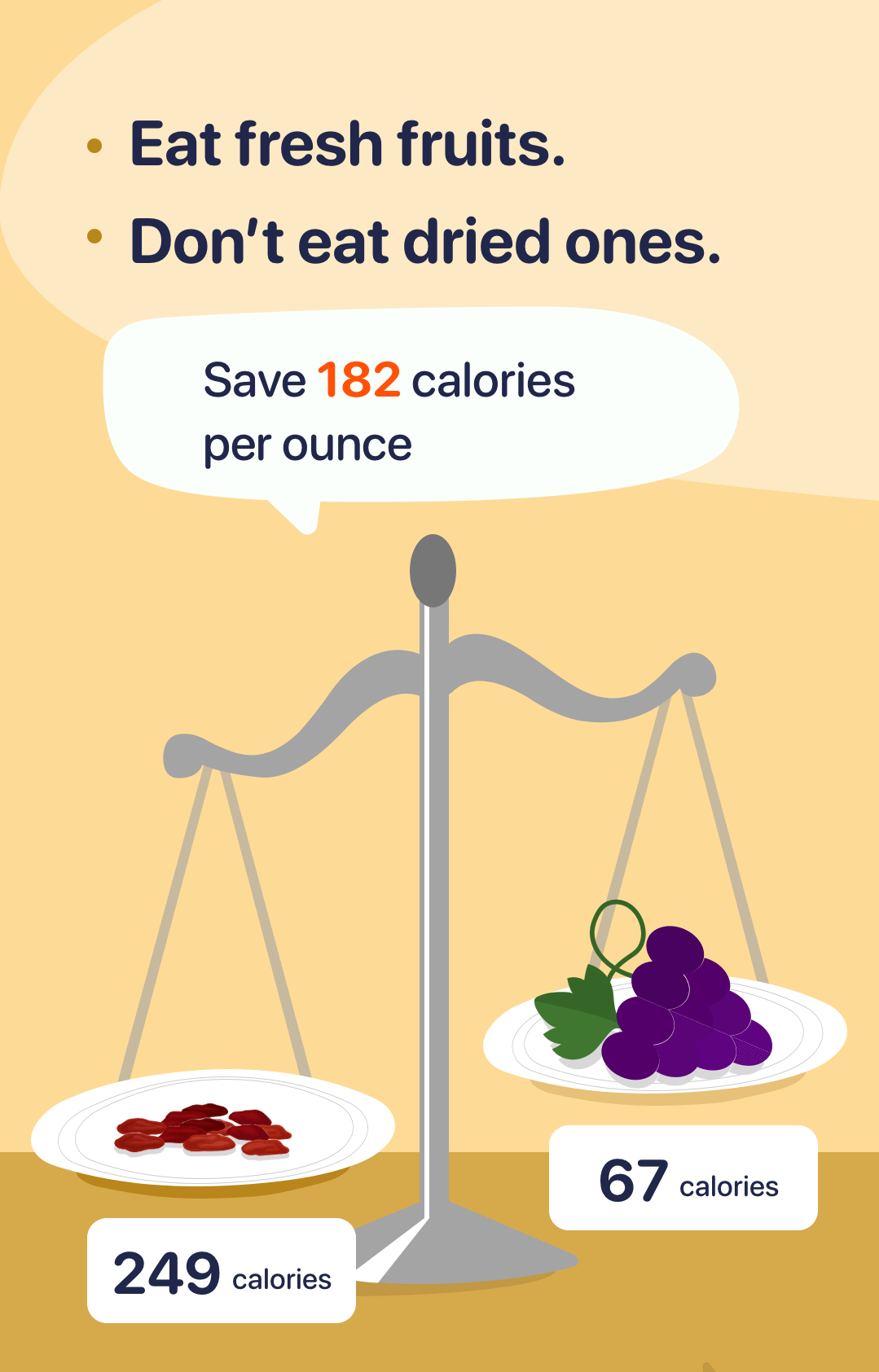
Be Cautious about the Sugar Content.
Although fruits undoubtedly boost people’s health, the sugar content should be cautious because it’ll possibly have bad effects on people’s health such as high blood pressure or diabetes.
There’s an easy way to know about how much sugar a type of fruit contains. Open Google and search with the keyword “fruit sugar content” with a click. Then, you’ll see the following tool:
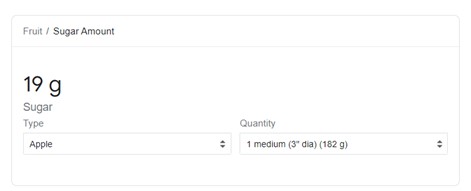
By selecting fruit type and quantity, you’ll be able to grasp a specific sugar content corresponding to a type of fruit. Comparisons in terms of sugar content can be also made between different fruit types.
Don’t Eat Too Many Fruits One Time.
In terms of everything, too much is a bad thing.
Consuming too many fruits one time possibly brings about health problems to people, especially those suffering from high blood sugar, which is especially obvious when fruits are made into juice. It’s a good idea to figure out the sugar content before you really eat fruits.
Do Eat Seasonal Fruits.
Seasonal fruits usually grow in a natural way, compatible with the natural lifestyle of all the world. After all, the new technologies these days can break the fundamental principle of living things, which is scary and unacceptable. Seasonal fruits comply with our ancestors’ living habits, what to eat in what season. Don’t break the ancient lifestyle too easily.
Top Fruits Beneficial for Intermittent Fasting
Apples

Amount Per: 1 medium (182g)
Calories: 95
Dietary fiber: 4.4g
Sugar: 19g
Protein: 0.5g
Vitamin C: 14%
Calcium: 1%
Vitamin B-6: 5%
Magnesium: 2%
Apricots
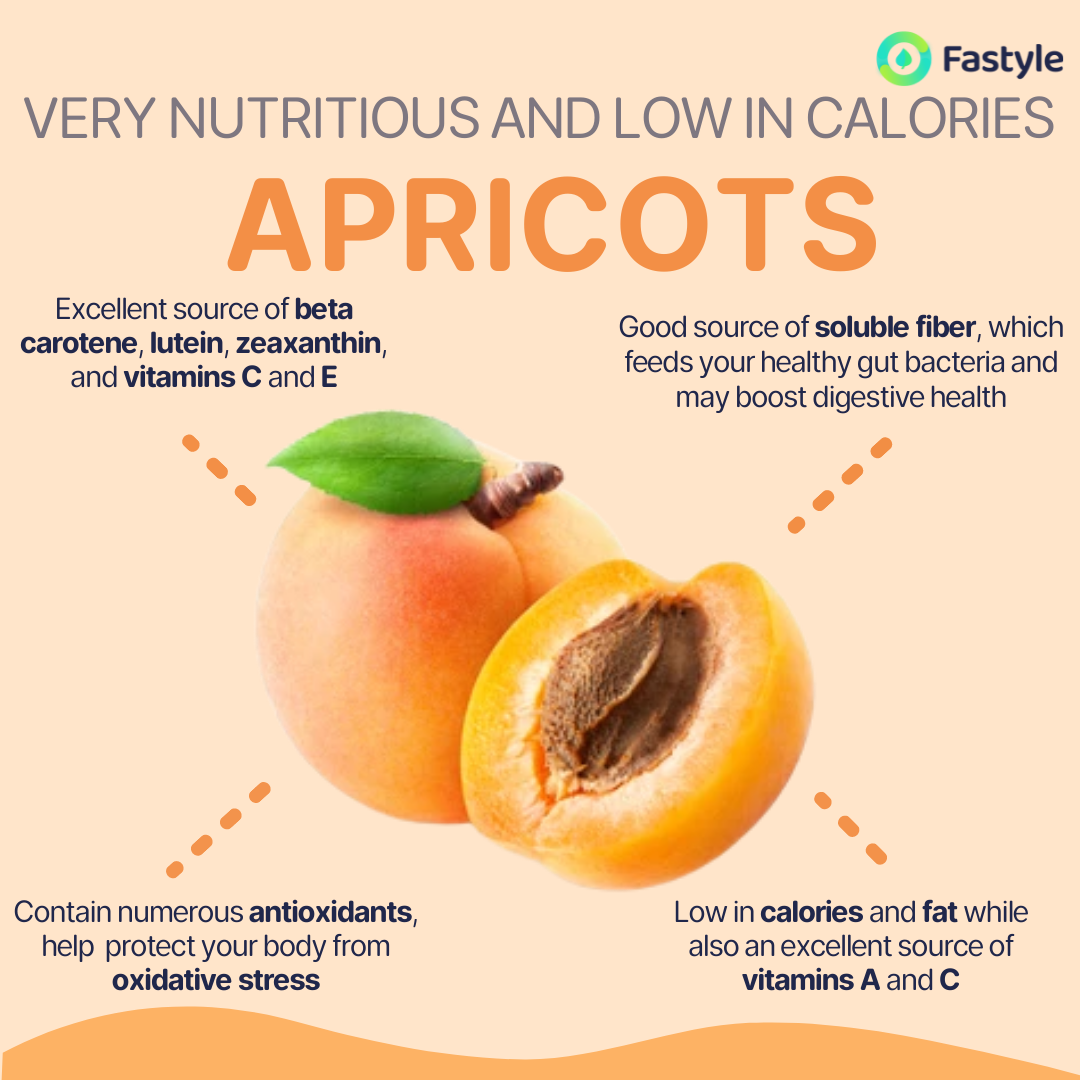
Amount Per: 1 cup (165g)
Calories: 79
Dietary fiber: 3.3g
Sugar: 15g
Protein: 2.3g
Vitamin C: 27%
Calcium: 2%
Vitamin B-6: 5%
Magnesium: 4%
Blueberries
Amount Per: 1 cup (148g)
Calories: 85
Dietary fiber: 3.6g
Sugar: 15g
Protein: 1.1g
Vitamin C: 24%
Calcium: 0%
Vitamin B-6: 5%
Magnesium: 2%
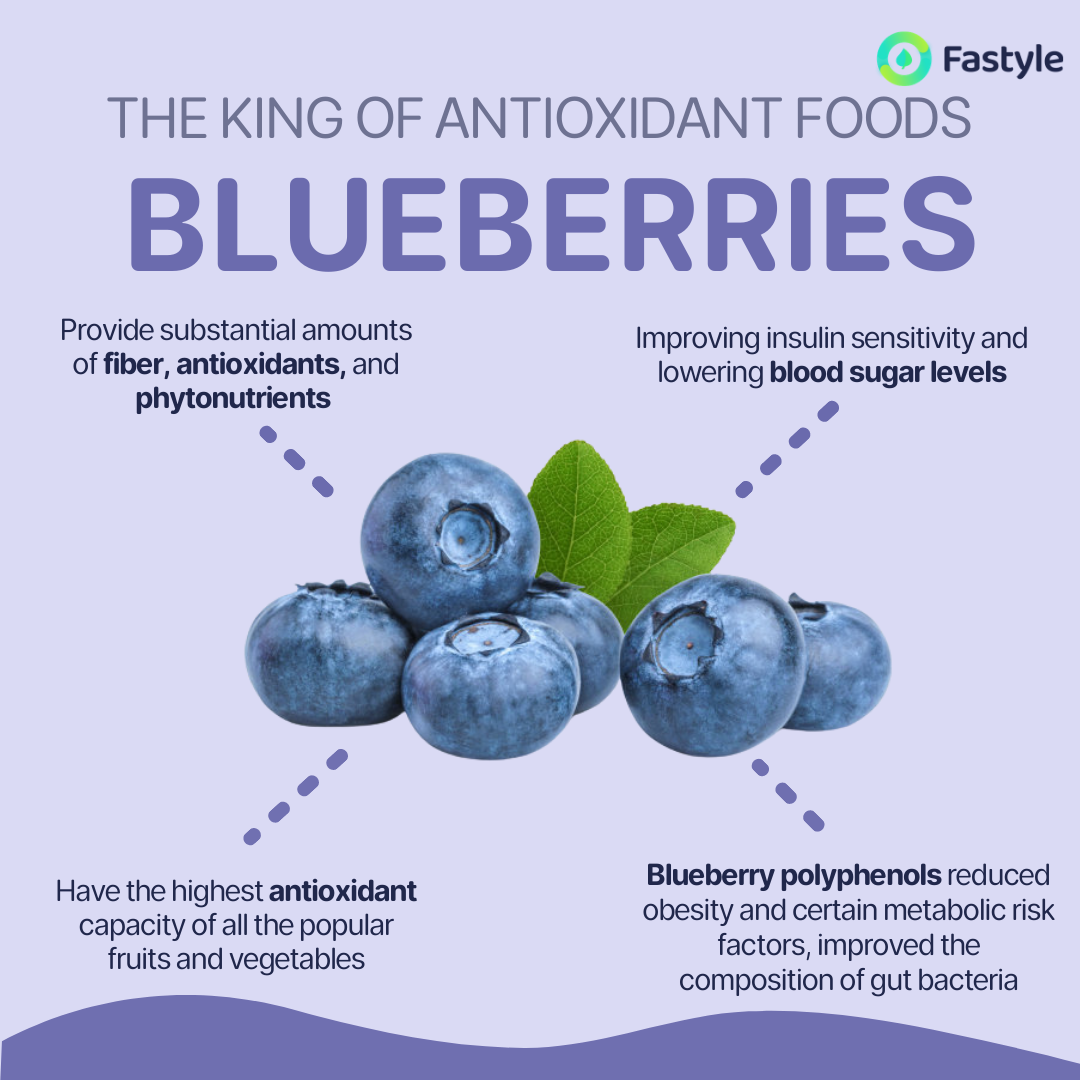
Blackberries
Amount Per: 1 cup (144g)
Calories: 62
Dietary fiber: 8g
Sugar: 7g
Protein: 2g
Vitamin C: 50%
Calcium: 4%
Vitamin B-6: 0%
Magnesium: 7%
Grapes
Amount Per: 1 cup (92g)
Calories: 62
Dietary fiber: 0.8g
Sugar: 15g
Protein: 0.6g
Vitamin C: 6%
Calcium: 1%
Vitamin B-6: 5%
Magnesium: 1%
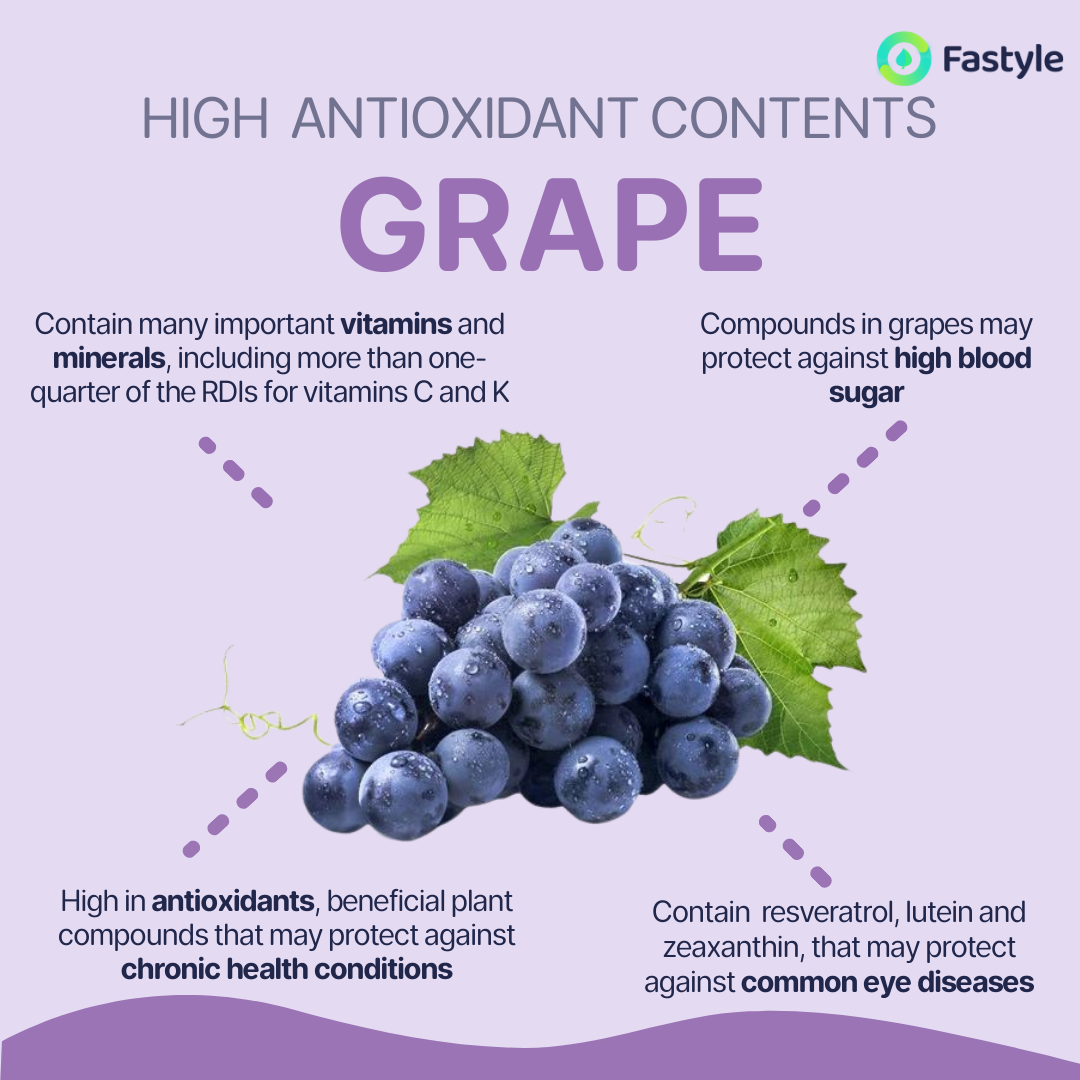
Pears
Amount Per: 1 medium (178g)
Calories: 101
Dietary fiber: 5.52g
Sugar: 17.4g
Protein: 1g
Plums
Amount Per: 1 fruit (66g)
Calories: 30
Dietary fiber: 0.9g
Sugar: 7g
Protein: 0.5g
Vitamin C: 10%
Calcium: 0%
Vitamin B-6: 0%
Magnesium: 1%
Oranges
Amount Per: 1 small (96g)
Calories: 45
Dietary fiber: 2.3g
Sugar: 9g
Protein: 0.5g
Vitamin C: 85%
Calcium: 3%
Vitamin B-6: 5%
Magnesium: 2%
Lemons
Amount Per: 1 fruit (58g)
Calories: 17
Dietary fiber: 1.6g
Sugar: 1.5g
Protein: 0.6g
Vitamin C: 51%
Calcium: 1%
Vitamin B-6: 0%
Magnesium: 1%
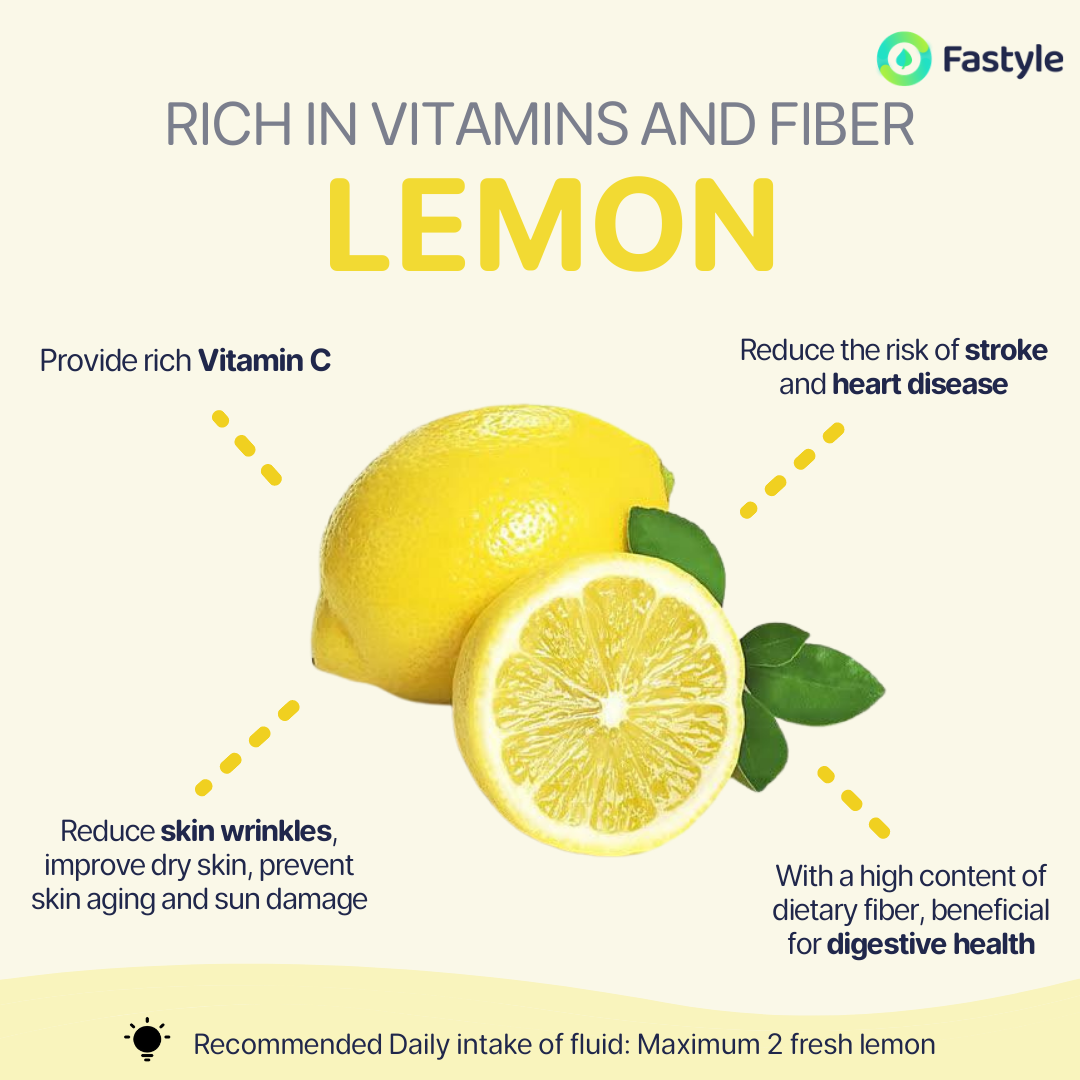
Kiwifruit
Amount Per: 1 fruit (69g)
Calories: 42
Dietary fiber: 2.1g
Sugar: 6g
Protein: 0.8g
Vitamin C: 106%
Calcium: 2%
Vitamin B-6: 0%
Magnesium: 3%
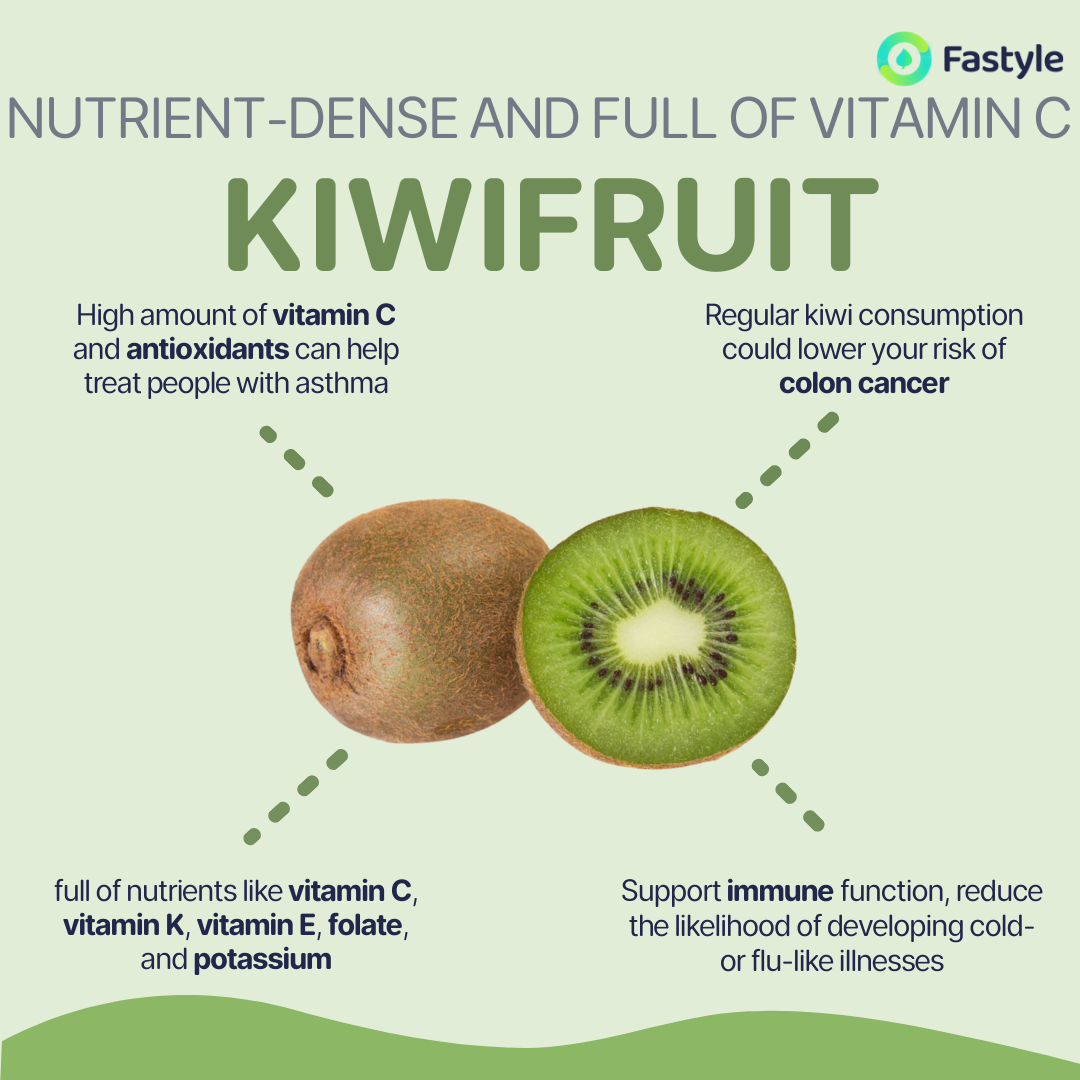
Cantaloupe
Amount Per: 1 medium (552g)
Calories: 186
Dietary fiber: 5g
Sugar: 43g
Protein: 4.6g
Vitamin C: 337%
Calcium: 5%
Vitamin B-6: 20%
Magnesium: 16%
Papayas
Amount Per: 1 small (152g)
Calories: 59
Dietary fiber: 3g
Protein: 1g
Vitamin C: 157%
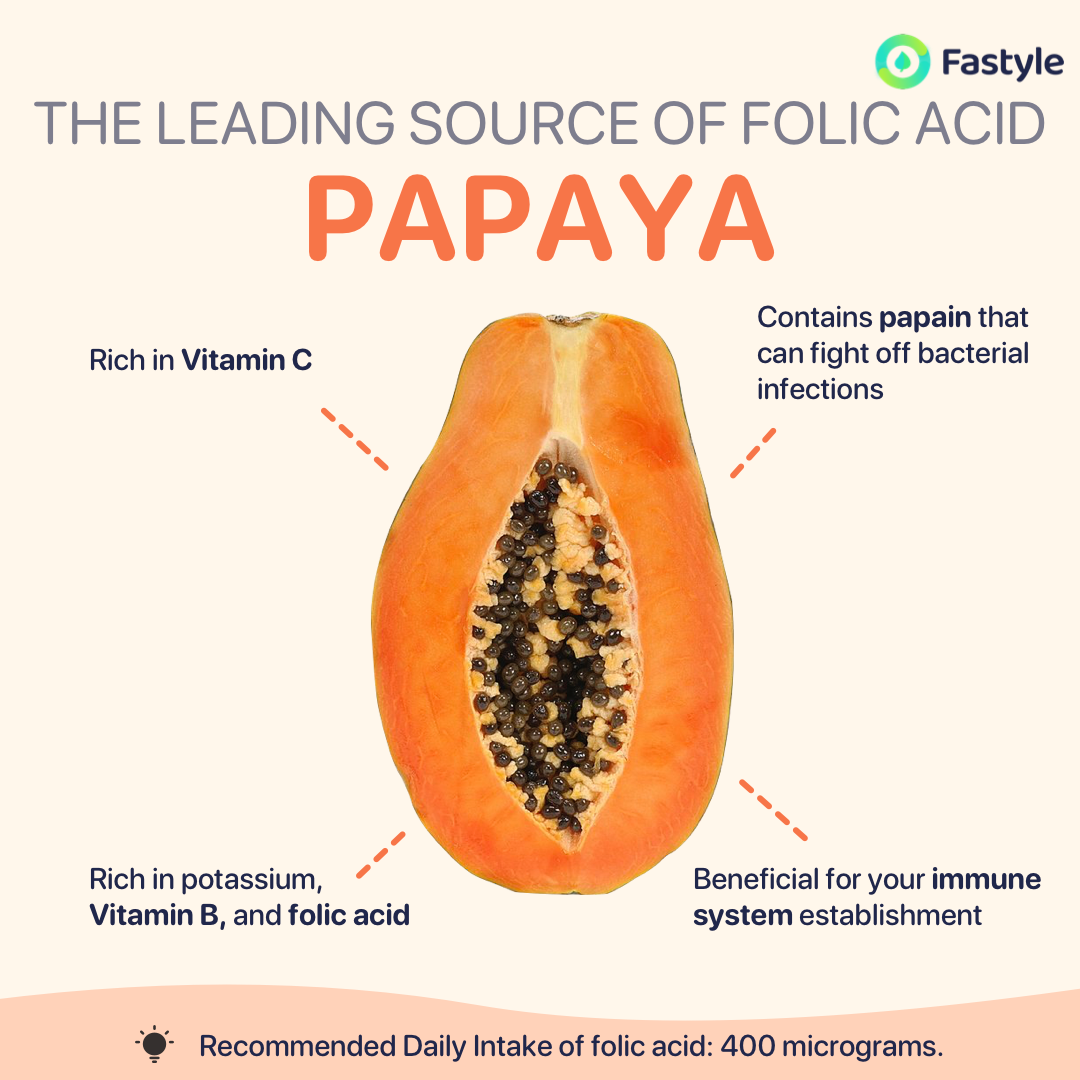
Avocadoes
Amount Per: 1 cup, sliced (146g)
Calories: 234
Dietary fiber: 10g
Sugar: 1g
Protein: 2.9g
Vitamin C: 24%
Calcium: 1%
Vitamin B-6: 20%
Magnesium: 10%

Coconuts
Amount Per: 1 medium (397g)
Calories: 1405
Dietary fiber: 36g
Sugar: 25g
Protein: 13g
Vitamin C: 21%
Calcium: 5%
Vitamin B-6: 10%
Magnesium: 31%
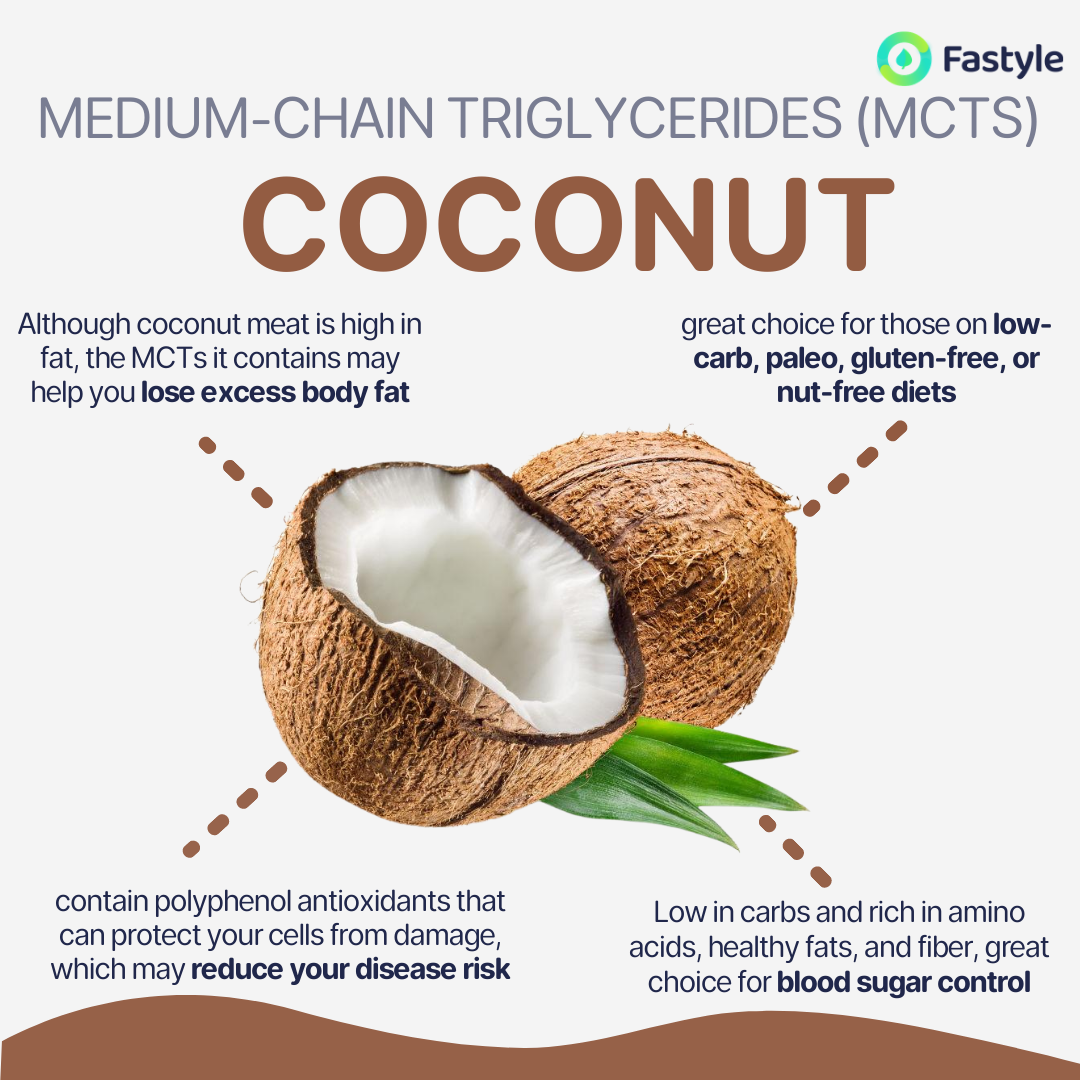
FOLLOW US